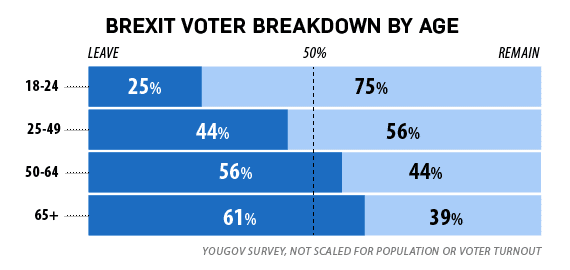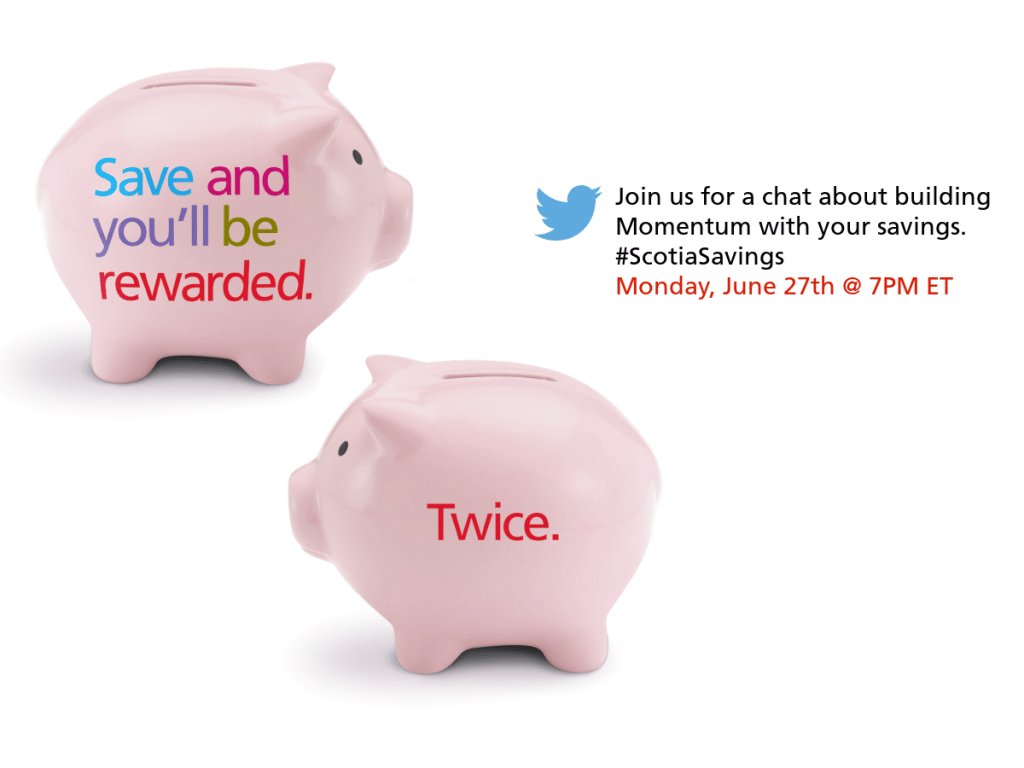Weekend Reading: Scotia Twitter Chat Edition
What a crazy week! First, perhaps taking a cue from my pro-CPP expansion article, the federal government and most provinces agreed on CPP reform, with premiums set to increase in 2019. This surprisingly quick compromise got the internet buzzing for a better part of the week.
Then Brexit happened.
Brexit, or British exit, referred to Thursday’s referendum by British voters to leave the European Union. Voters were split, according to most polls, in the weeks leading up to the referendum. The youth vote was hoping to remain in the EU, while the 50+ crowd wanted to leave the EU and its free flowing migration and trade.

Pundits were shocked late Thursday night as it became clear that Britain had voted to leave the EU. What happens next is anyone’s guess, although that didn’t stop every news outlet, political commentator, and economist from adding their two cents about the new and scary future.
Sure, the markets (over) reacted as they always do to news of this magnitude. But for those of us saving and investing for a future that’s decades away, Brexit is just one of many small setbacks we’ll see throughout our journey.
Morgan Housel summed it up best: The pundits may panic. Don’t follow their lead.
Momentum Twitter Chat
Speaking of saving and investing, I’m thrilled to partner with Scotiabank to host the Momentum Twitter Chat on Monday night (June 27th) at 7:00 p.m. EST using the hashtag #ScotiaSavings.

I love talking about money and this Twitter Chat will be especially fun (and timely) since we’ll be chatting about how to build momentum with your savings. We’ll touch on a number of topics, including:
- How to make savings a priority when there are so many other things competing for your money
- Saving in a low interest rate environment
- The best place to park cash for short-term goals
- Tips to get started on a savings plan
- Where to invest your first $1000
In light of all the macro-economic activity in the news this week, the fact is that CPP expansion and Britain leaving the EU probably won’t impact your personal finances in the short term. You still have to execute your financial plan and focus on the areas that you can control.
I enjoy reading about behavioural economics and consumer behaviour and one trend that I hope can help boost the savings habits of Canadians is the gamification and incentivization of products to lead to better outcomes.
For example, I’ve written before about the Momentum Savings Account that rewards inertia. Clients earn bonus interest when they keep a balance of $5,000 or more for longer than 90-days. It’s incentives like this that keep customers engaged and thinking about ways to save and earn more money.
This week’s recap:
On Monday I wrote about Canada Pension Plan expansion and why it matters.
On Wednesday Marie explained why a savings plan is like starting a diet.
And on Friday we had the Travelling Boomer stop by and share 5 ways to visit Europe on a budget.
Over on the Lowest Rates blog I looked at co-signing a car loan for your teen.
And The Globe and Mail’s Paul Attfield was kind enough to include my answers in this automated investing FAQ: Answers to six questions about robo-advisors.
Weekend Reading:
John Heinzl reveals his brilliant post-Brexit investing plan.
“Get ready for the bull market in opinions.” – Ben Carlson, A Wealth of Common Sense.
How the historic CPP deal came together so quickly.
Canadian Federation of Independent Business president and chief curmudgeon Dan Kelly says the CPP expansion is just a bailout for people who take a trip to Mexico.
Is CPP a disaster for Canadian business? That’s selling it too hard.
MoneySense calculated how much more you’ll get from CPP changes and determined that some could see around 50% more pension.
CBC also took a detailed look at what the CPP boost means for the average Canadian worker.
Why expand the CPP? Rob Carrick says just take a look at house prices.
A fascinating look into the world of Generation Z – the anti-Millennials.
Speaking of Millennials. This guy is 31, makes $130,000/year, still lives with his parents, and feels that buying a house will cut into his extravagant lifestyle. Ugh.
Why Generation X is squeezing baby boomers out of cottage country as retirement looms.
Why does the government keep spoiling your online bargains? A new study looks at what would happen if the feds raised the threshold for charging cross-border duties and taxes.
The federal government is putting together a working group to “discuss” housing affordability problems in B.C. and Ontario.
Meanwhile, Vancouver is ready to forge ahead with a vacant home tax, with or without support from the province.
Here’s why your daily commute might be destroying your happiness.
Preet Banerjee interviewed Nest Wealth founder Randy Cass about automated online advice, aka robo-advice, in his latest podcast.
“Why pay a percentage of assets when you can pay a flat rate for investment advice instead?”
Canadian Couch Potato Dan Bortolotti compares the cost vs. convenience of owning ex-Canada ETFs like VXC and XAW.
Do you compare your portfolio’s returns to an appropriate benchmark? Michael James goes through several scenarios where benchmarking makes good sense.
Finally, want to get married for $427? Don’t say the W-word – and other tips.
Have a great weekend, everyone!


I was surprised at first by the criticism of betting markets on the Brexit outcome. When I saw that the odds were pegged at 75% remain, I took that to mean it was way too close to call. After all, if we took this percentage as accurate, a vote to leave was as likely as tossing tails twice in a row — hardly unlikely. However, it seems that many people took it almost as though the vote outcome would be 75% to 25%, and that the gamblers got it wrong.
Thanks for them mention.